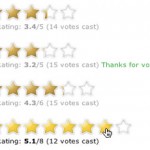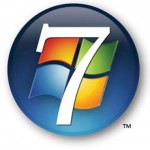 Washington— US telecommunications giant Verizon, has been awarded a record judgment by a federal court in the Northern District of California for $33.2 million in a cybersquatting lawsuit against a shady Internet domain services company “ OnlineNIC” that claims to registered hundreds of domain names using Verizon name and trademarks.
Washington— US telecommunications giant Verizon, has been awarded a record judgment by a federal court in the Northern District of California for $33.2 million in a cybersquatting lawsuit against a shady Internet domain services company “ OnlineNIC” that claims to registered hundreds of domain names using Verizon name and trademarks.
Verizon said the award was made in a default judgment late last week, by a federal court in Northern district of California in San Francisco ruled that OnlineNIC should pay $50,000 for each of the 633 domains Verizon claims were created specifically to be confused with legitimate Verizon brands.
The judgment, which Verizon described as the largest ever in a cybersquatting case, was handed down last Friday by United States District Judge Jeremy D. Fogel in San Jose, Calif. Judge Fogel froze OnlineNic’s assets and ordered the transfer to Verizon of all identical or confusingly similar addresses.
According to the lawsuit filed by Verizon in June 2008 against OnlineNIC, a San Francisco-based Internet domain registration company, accusing the company of trademark infringement and illegal “cybersquatting,” by using an automated process to intentionally register sites such as: verizononline.com, myverizonwireless.com, 123verizonphones.com, accountverizonwireless.com, and iphoneverizonplans.com. Such knockoff Verizon sites hosted ad links and pop-under advertisements that resulted in revenue for OnlineNIC.
“This case should send a clear message and serve to deter cybersquatters who continue to run businesses for the primary purpose of misleading consumers,” Sarah Deutsch, an associate general counsel at Verizon, said in a statement.
This is the fourth cybersquatting case Verizon has won in the past couple of years, Eric Rabe, senior vice president of media relations at the telecommunications giant, said in a statement.
“We are getting even more active on this because the problem has been getting more and more severe,” Rabe said.
Verizon claims that OnlineNIC conceals its owners’ true identities and involvement by using numerous shell entities, fictitious businesses, and personal names for ICANN registration. The firm also allegedly deletes infringing domains within five days and then re-registers to avoid paying registration costs and to avoid detection by trademark owners.
OnlineNic registered more than 900,000 domain names similar to some of the world’s biggest companies, including Google, Adidas, the News Corporation’s MySpace, Wal-Mart Stores and Yahoo, Verizon said in court papers. In 2006, for instance, Microsoft filed suit against cybersquatters who had registered domain names playing off the company’s Xbox 360 and Hotmail products.
OnlineNIC claims to be based in San Francisco, although its website offers an Oakland, California mailing address. Court filings show that Verizon was unable to find a correct mailing address for any OnlineNIC employees at which to serve the court summons.
During the presidential elections alone, for example, cybersquatters registered more than 1,800 names to cash in on the public’s thirst for information. Other major Internet and media companies regularly go after cybersquatters as well.
OnlineNIC had been registering domain names like “Varizon.com” and “verizoncellphonecompany.com,” Rabe said.
“The idea is that people making typographical errors when they search the Web land on their site and, if they click on the ads on their sites, OnlineNIC gets paid.”
There is a least possible way to combat the practice of capitalizing on typos, or “typosquatting,” as it is regarded. CitizenHawk offers TypoSquasher, a ‘software as a service’ (SaaS) offering that checks the Web to detect possible misspellings of domain names, identifies instances of typosquatting and sends notices of fraudulent activity to domain owners.
Not only would Verizon lose customers, but, if a link led to its legitimate Web sites, it would lose money because it would have to pay for that click-through, Rabe said.
In an effort to further combat cybersquatters, Verizon said it has activated several misspelled sites that it owns, including "Verison.com."
“We had registered these sites to prevent somebody else from using them, but had not used them ourselves, and now we are turning them back on,” Rabe said.
No one appeared in court on OnlineNIC’s behalf, and Verizon itself cannot figure out exactly who is behind the scheme, according to court documents.
OnlineNic did not immediately respond to e-mail messages seeking comment. Directory assistance could not provide a number for the company. No lawyers for the company were listed on the court docket.
“We tried to serve them in a variety of different ways but could not get to them,” Rabe said. “One of their addresses, for example, was a body shop.”
He added that Verizon suspects OnlineNIC has offices offshore, but has not located them yet.
Microsoft and Yahoo also have similar lawsuits currently pending against OnlineNIC.


